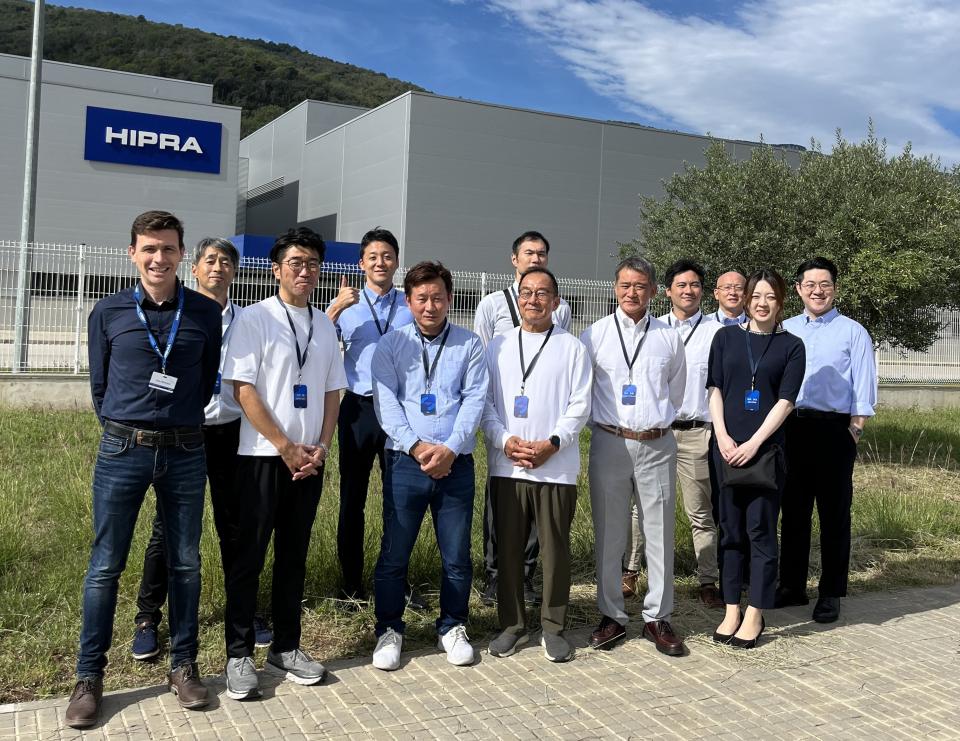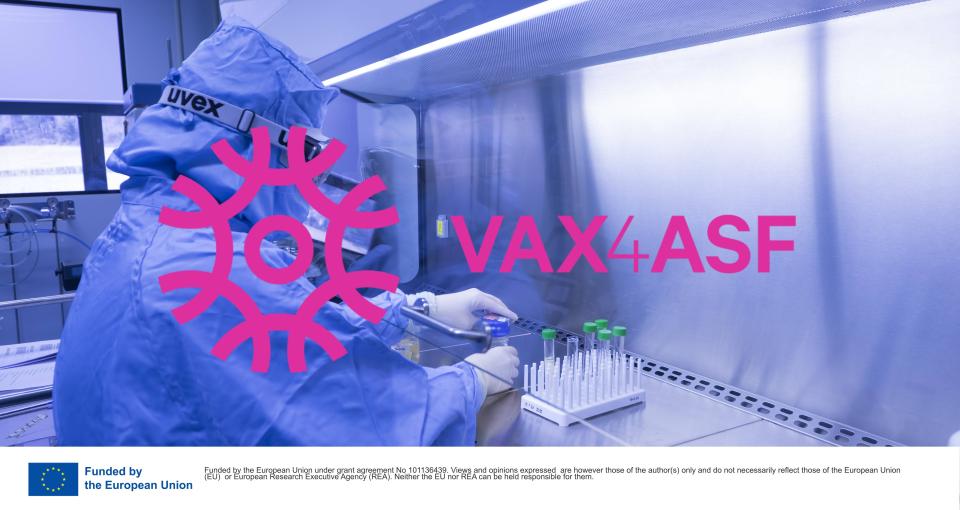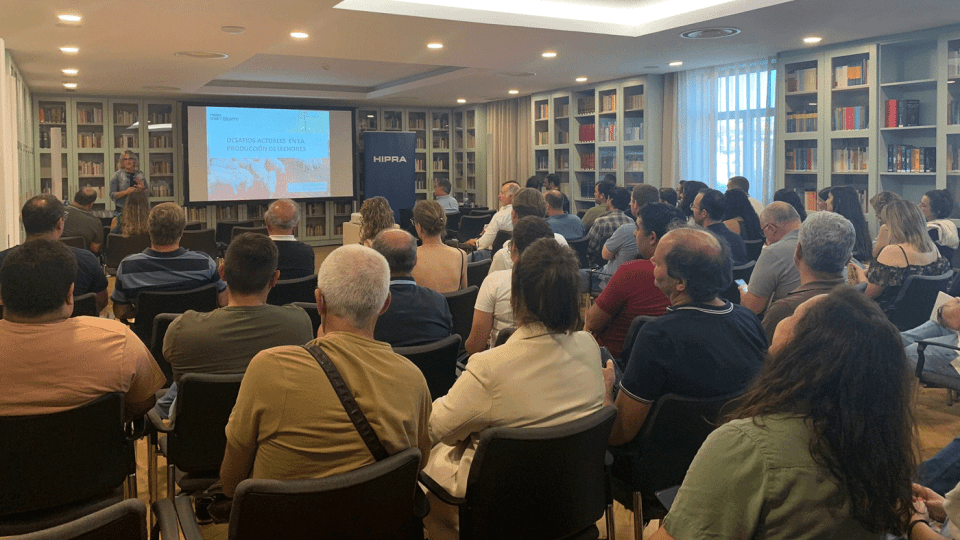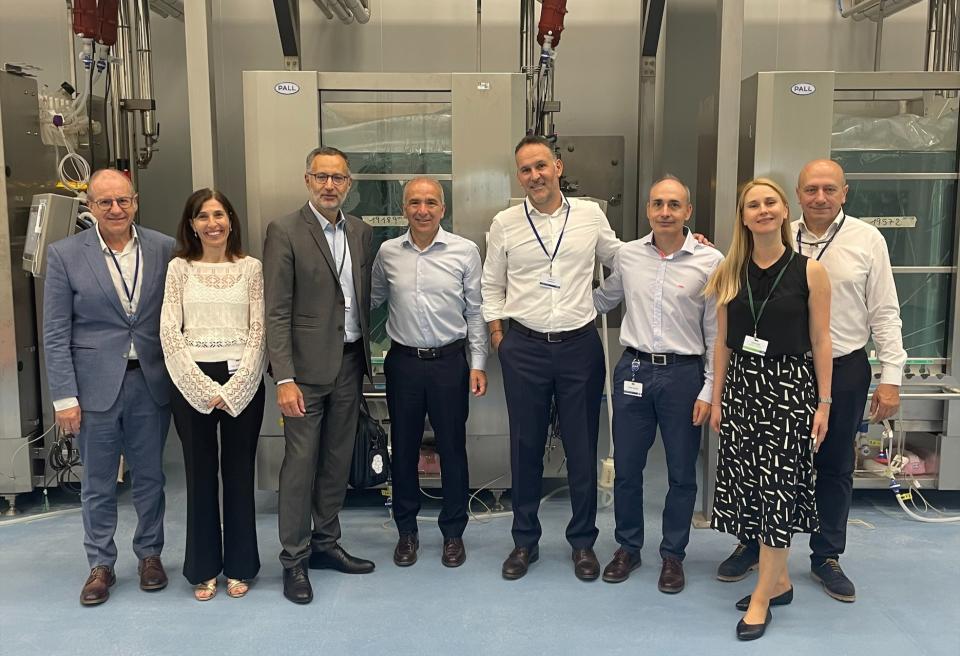VAX4ASF completes first year of research on effective solutions against African Swine Fever
The VAX4ASF project marks a successful first year in its mission to combat African Swine Fever Virus (ASFV). Backed by the European Commission, this initiative has made substantial progress on vaccine prototypes and diagnostic tools, uniting top institutions to protect the swine industry and animal health with innovative solutions.
On November 5th, the Annual Consortium Meeting for the European VAX4ASF project was held, where a comprehensive report on the achievements of the first year was presented, along with discussions on the main lines of research for the coming year. The event brought together the project’s 17 partners from various fields, including scientific research, animal welfare, veterinary medicine, and epidemiology, all collaborating closely to develop innovative solutions to combat African Swine Fever (ASF), a devastating disease that affects global swine populations.
Progress and Key Achievements of VAX4ASF’s First Year
In its inaugural year, the VAX4ASF project, formally known as "New Technologies for African Swine Fever", has laid a strong research foundation, focusing on two innovative approaches for limited replication vaccines aimed at overcoming previous barriers to effective African Swine Fever (ASF) prevention. These vaccine strategies, though still in experimental stages, are evolving well with further advanced testing estimated in the coming year.
Beyond vaccine development, VAX4ASF is pioneering new tools and strategies for ASF control and prevention. Consortium partners are advancing methods for early detection and diagnostics—essential measures to contain the virus in high-risk areas. This initiative is part of an integrated action plan that involves close collaboration with local farms and animal health authorities across European countries and other affected regions.
Aligned with these objectives, VAX4ASF has achieved significant progress in key areas of research. Advanced molecular tools for vaccine prototype development have been established, providing a solid foundation for further research into effective virus control. The team has also identified specific ASFV genes linked to the host immune response, which will enable moving forward with the vaccine design. In addition, VAX4ASF’s work on ASFV antigens identification of critical markers can be incorporated into diagnostic tests to distinguish between vaccinated and infected animals, an essential step for controlling the virus in areas where vaccination programs are implemented.
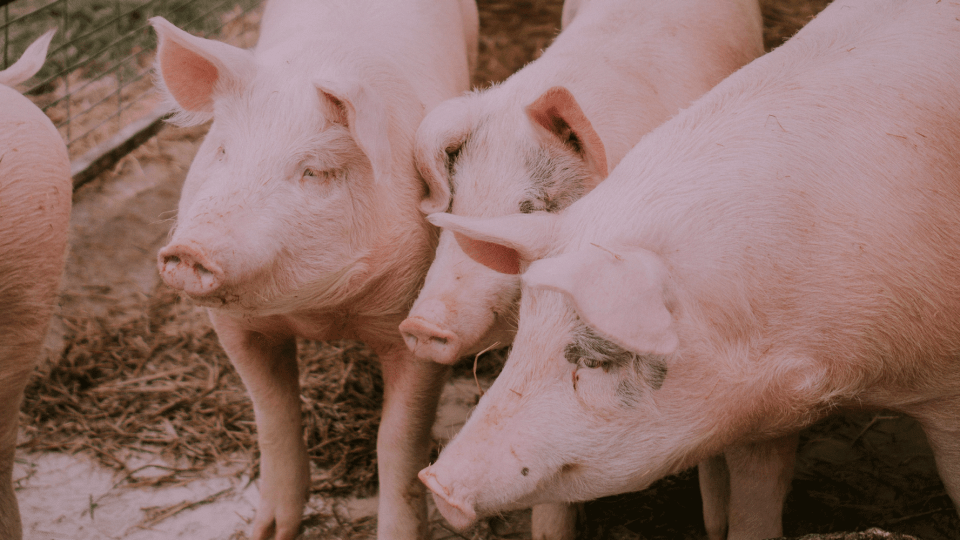
Expectations for the Project's Second Year
In the coming year, VAX4ASF will focus on advancing the vaccine prototypes through testing phases, conducting safety and efficacy studies, and strengthening its collaboration network with key players in the livestock and animal health industries. These efforts will adhere to strict research protocols to ensure the developed solutions are effective, safe, and aligned with European and international regulations. The European Commission remains committed to supporting VAX4ASF as part of its efforts to enhance food safety and protect biodiversity and animal welfare in Europe and regions affected by ASF.
An International Project to Combat African Swine Fever
The European project VAX4ASF — New Technologies for African Swine Fever (ASF) — aims to develop advanced technologies to provide an effective and safe response to ASF virus. Led by the biopharmaceutical company HIPRA and supported by the European Union under the Horizon Europe program, VAX4ASF brings together research centres from various countries, universities, and technology sector companies working in a coordinated effort to not only mitigate ASF’s impact but also provide tools for eradicating the disease in affected areas.


